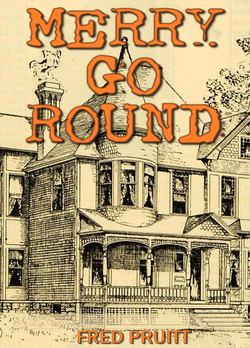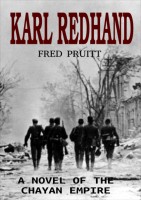|
2025-07-20 Israel-Palestine-Jordan
|
|
General Dima, window smasher David. How the Israelis robbed Russia of $300 million
|
Direct Translation via Google Translate. Edited.
by Mikhail Moshkin and Mark Leshkevich
[REGNUM] Even in the digital age, paper books are still not only a profitable product, but also an object of attention for thieves. For example, the largest Russian book-selling chain "Chitai-gorod" lost 300,000 copies last year. It's funny that the top three included a manual on "successful success". It's unlikely that this knowledge enriched the thieves.
It's a different matter when the loot is ancient tomes, "quartos" and "octavos" worth a fortune. The recently deceased modest Israeli pensioner David Kabiri, the perpetrator of one of the largest burglaries in Russian history in the 1990s, could have told us about this.
In late May, the well-known Israeli philanthropist Amir Gross Kabiri, president of the Mansour Abraham Center for Fine Arts in Bnei Brak and founder of the industrial holding MT Abraham Group, sadly announced the death of his father, David Kabiri.
“Blessed is the judge of truth, for the crown of our heads has fallen,” Kabiri the Younger quoted from the Torah, although he did not continue the quote: “…Woe to us, for we have sinned.”
It is not known whether Kabiri Sr. considered himself a sinner. But he certainly took to his grave some of the details of the theft of rare Jewish books from the Russian National Library in St. Petersburg for $139 million (in 1994 prices, now it is $301.5 million). But the main plot of the robbery of the century is more or less known - as is its background and the general "spirit of the era."
In the early 1990s, there were frequent lawsuits over rare and valuable books “hidden” in Russian libraries and archives. The press actively covered lawsuits against Russia by the head of the Chabad organization (headquartered in New York), the seventh Lubavitcher Rebbe Menachem Mendel Schneerson, over thousands of manuscripts and printed volumes collected by his ancestors.
The body of books of the Schneerson family is kept in the Moscow Russian State Library, still known as the Lenin Library.
| Presumably stolen by the Soviet Union from the Jews, and now a few small pieces stolen back. Not my way of doing things, but one can understand the impulse. |
In 1995, during an inspection at Leninka, it was discovered that several of Schneerson's manuscripts had disappeared. And at the end of the following year, they surfaced on the black market of antiques in Israel. The reputation of Chabad and the Seventh Rebbe, we emphasize, was and remains above suspicion: the Hasidim tried to "return" the heritage by strictly legal methods. But there were also those who tried to obtain Kabbalistic treatises and rare copies of the Talmud by illegal means.
The object of criminal interest was the Russian National Library (in Soviet times, the Leningrad State Public Library named after Saltykov-Shchedrin). In the early 1990s, several high-profile thefts involving foreigners took place here. The reason is simple: in those years, any brothel was guarded much better than the "Publica". The inventory of funds was incomplete, libraries and their employees lost funding, which meant that "negotiating" access to funds was a fairly simple matter.
Even before the collapse of the USSR, Israeli citizen Moses Frisch, who also called himself Mark, began to frequent Leningrad during perestroika. In those years, every wealthy foreigner was seen as a potential business partner or investor. Unfortunately, the fact that Mr. Frisch had previously attracted great interest from the Israeli police escaped attention.
In 1990, Moses-Mark contacted Viktor Lebedev, the custodian of the rare manuscripts department at the State Public Library, an employee with 30 years of experience. And he managed to find a "master key" to it.
CURATOR AND PATHOLOGIST
Frisch introduced himself as an Israeli businessman and, in exchange for help in acquiring (read: removing) rare manuscripts from the "Public Library", offered to fulfill Lebedev's dream. Moses-Mark promised to help with money in organizing the Institute of Jewish Culture in the Northern capital.
A number of publications claim that the decisive role in the agreement between the Israeli guest and the custodian of the "Public Library" was played by Viktor Lebedev's wife, Svetlana, a pathologist by profession.
Be that as it may, in 1990-1991 Frisch organized the "removal" of about two dozen medieval Jewish manuscripts. It was claimed that as a token of gratitude, the "Israeli businessman" bought the Lebedevs a car and took the rather poor Soviet museum workers to restaurants several times.
After the August putsch, Austrian citizen Yehuda Frenkel arrived in what was now St. Petersburg and donated a small sum (500 dollars were mentioned) to the State Public Library in exchange for “work” in the museum.
As a result, 15 rare documents disappeared from the Public Library, including the Kituba, the text of an ancient Jewish marriage contract. It was the Kituba that played the main role in the further development of the story - the manuscript surfaced at a New York auction. There it was bought by the American Friends of the Israel Museum foundation, which transferred it to the Main National Library of Israel in Jerusalem.
This part of the story had a happy ending. Jerusalem experts found out that this was the same Kituba that was kept in the St. Petersburg Public Library, and reported the find to the Russian side. The RNB began an investigation. Viktor and Svetlana Lebedev, without waiting for someone to find their trail, left Russia — and settled… in Israel.
Here the "business" continued.
DAVID AND ZION GO TO WORK
Lebedev compiled a detailed list of the most valuable Jewish books for the same Moses-Mark Frisch. And, as the Russian investigation believes, it was Lebedev who developed the plan to penetrate the "Publica". Then Mr. Frisch leaves the stage for a good reason - in March 1993, he was convicted by an Israeli court for importing a large consignment of cocaine from Colombia.
Now we have to introduce two important characters into the narrative.
The first person is Itzhak Zarouq, an Israeli antique dealer, an acquaintance of Frisch and Frenkel. Frisch introduced him to Lebedev, and Zarouq brought his business partner into the case. By the name of David Kabiri. Judging by a number of publications, it was Zarouq who was the main customer of the theft of the century.
The second person is an even more remarkable personality. One of the most mysterious characters of the 1990s was the then 31-year-old lawyer Dmitry Yakubovsky, also known as "General Dima." He did not earn the rank of general, but by that time he had managed to be an adviser to the Prosecutor General of Russia on international legal issues and deputy head of the main radio intelligence department of FAPSI (Federal Agency for Government Communications and Information).
According to the investigation, which was accepted by the court, the organizers of the theft contacted Yakubovsky through his brother Stanislav, who had the right to go to the airfield without having his luggage inspected. This would have been extremely convenient when taking the books abroad. But they still had to be stolen.
According to investigators, “General Dima” was offered to participate in the robbery in exchange for paying off his wife’s debts, which amounted to at least $1.3 million.
At the beginning of November of the same year, four more Israelis arrived in St. Petersburg, led by the already known to us David Kabiri. His right hand was a man with the "telling" name Zion Levi (referring to Mount Zion and the priests of the Jerusalem Temple - the Levites).
The couple were accompanied by Itzhak Zaroug and another “business partner,” Chaim Toub, who had rented a car to transport the stolen goods.
The four came to the RNB under the guise of tourists, accompanied by a guide, played by Svetlana Lebedeva, and examined the building and courtyard of the library. In December, the same four arrived in St. Petersburg again.
On the night of December 10-11, criminals used wire cutters to break the iron chain of the gate from the Sadovaya Street side. The thieves entered the courtyard of the RNB and climbed into the library through a window. According to the investigation, the person who broke the window was David Kabiri. The alarm did not work - a number of publications say that Lebedev warned the criminals in advance.
Toub and Zarouge were on guard duty from the Sadovaya side. Kabiri and Levi calmly collected the necessary manuscripts - 89 storage units.
BAGS OF "KOSHER FOOD"
Among them were texts of psalms from the 13th–15th centuries, brought from the Cairo genizah (a book depository at a synagogue), and several medieval manuscripts of the Torah and Talmud. It should be noted that this time the customer of the theft was interested not only in the heritage of Jewish ancestors. Kabiri and Levi grabbed a medieval Latin treatise from the 13th century, a number of medieval Chinese manuscripts, an Indian text on palm leaves, and a divan (collection) of early poems by Alisher Navoi. This book was brought to St. Petersburg by the Persian prince Fath Ali Shah along with the Nadir diamond as compensation for the death of Alexander Griboyedov in Tehran.
Everything was put into four bags, with which the thieves also left the building through the window. Kabiri, Levi, Toub and Zarouq took the books to two St. Petersburg apartments rented from a certain couple, the Gorenburgs. The owners were told that the heavy bags contained kosher food, which they said could not be bought in Russia.
But, according to the media at the time, it was the Gorenburgs who turned in the criminals: they looked in the bags, saw rare books and called the police.
Next, we will refer to the investigation - an ambush was organized in the apartments, on December 16, the driver and security guard Dmitry Yakubovsky were detained here, and they testified: they were ordered to deliver bags from St. Petersburg to Moscow for 10 thousand dollars, from where the books were supposed to fly to Israel by plane of the Stavropol airline and with the participation of Yakubovsky (who could bypass customs).
"General Dima" himself was also detained. According to his version, his involvement in this case was part of the political intrigues of the time: while still an official, he had a serious conflict with the "power bloc" - with Alexander Korzhakov, the head of Boris Yeltsin's security service, and with Mikhail Barsukov, who held the post of FSB director in the mid-1990s. Because of this, Yakubovsky allegedly lost his posts, and now, because of the "war of compromising evidence," he has found himself embroiled in a criminal case.
Be that as it may, "General Dima" was first sent to custody in the Kresty pretrial detention center, and was soon sentenced to five years in prison, which was replaced by four years with confiscation of property. He served his sentence in Nizhny Tagil, in a colony for former law enforcement and special services employees. In 1998, Yakubovsky was released, and in 2001 his convictions were expunged.
The Israeli part of the story was a bit strange. Russian law enforcement officers were not able to intercept all the manuscripts and books. Kabiri took the materials to Israel, and some, according to unconfirmed information, were resold in the USA.
The fate of most of the stolen valuables remains unknown.
TOO LENIENT SENTENCES
In 1995, Kabiri was arrested in Israel, where he became, it would seem, one of the main figures in a case that was supposed to become the trial of the century. The caveats are necessary, because the trial ended strangely.
The trial began in earnest, on an international scale - 12 people were defendants, including Stanislav Yakubovsky, the brother of "General Dima". Stanislav was arrested in Switzerland at the request of the Russian side and was sentenced to a year in a Swiss prison.
In Israel, the Lebedev couple and the Kabiri-Zarough-Levi-Toub quartet were involved in the case. The Gorenburgs from St. Petersburg acted as the main witnesses, after which the suspects (who had previously refused) confessed.
But then the "mysteries" began. Kabiri was convicted, but sentenced to only six months in prison and a fine of 13 thousand dollars (converted from shekels at the exchange rate at that time). The Russian side requested his extradition, but the request was rejected by the Israeli authorities.
Zion Levi also received a rather lenient sentence - a year of correctional labor and the same $13,000 fine. Note that former RNB employee Viktor Lebedev received the same amount - plus a fine of $5,000.
Itzhak Zaroug and Chaim Toub were not convicted.
At that time, the Israeli press quoted a mysterious phrase from one of the judicial officials: “Proving the charges will cost too much for the Israeli treasury.”
The cost of investigating and prosecuting is too high, they say. But that sounds more like an excuse. Under Israeli criminal law, people who steal, destroy, or damage items of high monetary value (over $133,000) will face a long prison term of seven years. Not six months and a fine.
David Kabiri, having been released, apparently became a law-abiding citizen of the State of Israel - in any case, no other criminal episodes involving him are known. His son and heir, Amir Gross Kabiri, became a successful businessman and philanthropist, created the industrial holding MT Abraham Group and the Center for Fine Arts. It is quite possible that he did so with honestly earned money.

|
Posted by badanov 2025-07-20 00:00||
E-Mail||
Front Page|| ||Comments
[46 views ]
Top
|
|
12:48 Super Hose
12:45 Seeking Cure For Ignorance
12:06 Grom the Affective
11:59 Frank G
11:57 Frank G
11:40 Snoluse Lover of the Danes4829
11:29 SteveS
11:25 DarthVader
11:14 DooDahMan
11:12 DooDahMan
10:28 JohnQC
10:22 MikeKozlowski
10:15 JohnQC
10:02 ed in texas
09:59 ed in texas
09:54 ed in texas
09:51 ed in texas
09:43 Throlush Dark Lord of the Nebraskans2736
09:42 NN2N1
09:39 NN2N1
09:32 Super Hose
09:30 Super Hose
09:27 Super Hose
09:26 SteveS
Merry-Go-Blog









|










